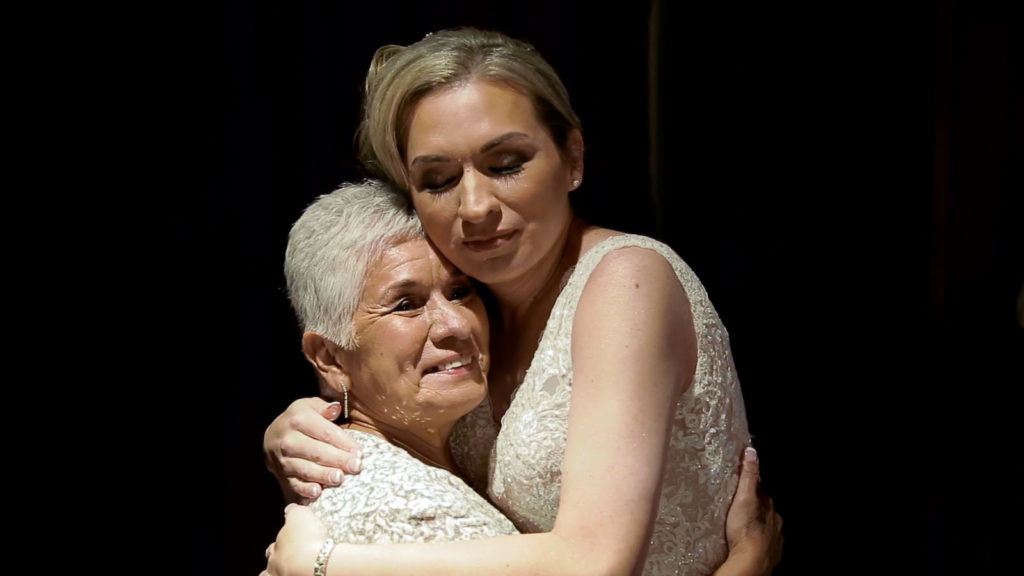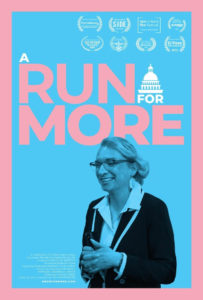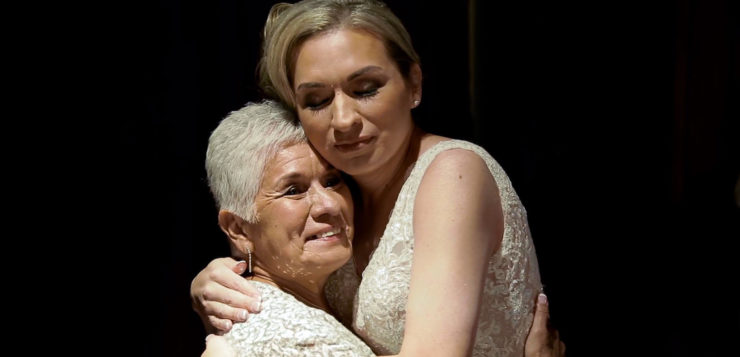
A Run for More is a beautifully made documentary that chronicles the political campaign of the first transgender candidate in Texas. When veteran political campaigner Frankie Gonzales-Wolfe ran for a seat on the San Antonio City Council, the historic run in the current political climate required steely courage, which she has in spades.
In a time when Texas politicians had just discovered the milage they could get out of anti-transgender legislation, dozens and dozens of anti-transgender billswere gratuitously introduced. This is the political whirlwind Frankie Gonzeles-Wolfe steps into.
Indeed, she is a tireless campaigner who has worked on more than 50 campaigns, including Hillary Clinton’s. She has politics in her blood. But running as the first openly transgender candidate was a different animal altogether. Unlike anything she had ever seen in politics, she now found that her campaign signs were being targeted for vandalism or being destroyed by members of the electorate. Campaign workers even caught sight of an indignant woman ripping down one of Frankie’s signs. Just replacing signs became a major task of the campaign.
Plans to knock on doors to meet the voters in her district, as campaigners typically do, had to be shelved. The problem was not voter apathy (the usual problem in a democracy); the new American problem now was voter hostility.
What’s more, it was really unfortunate that her own circle of dearest LGBT friends and biggest supporters felt trepidation about volunteering to help her campaign. Her trans friends in particular worried that their appearance might reveal the fact that they are LGBT, and therefore might hurt Frankie’s chances of getting elected. Having fewer campaign workers definitely lessened her chances.
Of course, democracy requires a level of maturity on the part of the electorate that has been elusive as of late.
Nonetheless, Frankie has such a presence in the film that “A Run for More” conveys an important message of self-acceptance. Her transgenderism, while a major part of the film, seems almost incidental to who she is and to what she is trying to achieve in her life and in government. Come what may, she is a real role model for anyone who wants to be all she can. She knows that getting ahead requires being able to get beyond oneself, to get out there, work hard, and make a difference in the world.
Filmed on location in sunny San Antonio, Texas, the picturesque city appears to have been tailor-made for the visual arts. You could say the city itself takes a starring role alongside Frankie and the other featured personalities.
Moreover, the documentary does not gloss over the fact that in 1998 Frankie Gonzales-Wolfe was victimized by 3 macho men who apparently are incapable of recognizing themselves as gay when they have sex with men. From the research, we know that mind-numbing hypocrisy is a way of life for many men in conservative locales, lamentably. Frankie explains in the film that she prayed for God’s help when the attack happened, and miraculously, she survived.
Poignantly, two key transgender activist leaders featured in the film, both energetic and roughly in their 60s, at least one with small children, were casualties of the coronavirus. Given that we know a disproportionately high number of minorities died in the pandemic in Texas, it would be irresponsible not to ask whether the death rate of LGBTQ people was also higher than for the white population in general.
Like many women in Texas, Frankie is a military wife. One of the most memorable and heart-warming parts of the film is getting to see how supportive her husband is of her. They have an incredible relationship. A military veteran with a heart of gold, he is visibly so proud of her accomplishments. Their love is tangible on film.
Although she did not win the election, the film ends triumphantly. Soon Frankie Gonzales-Wolfe joined forces with Rebeca Clay-Flores, serving as her campaign manager in her successful bid to become County Commissioner, and is now her Chief of Staff. Frankie Gonzales-Wolfe is the only transgender person to hold this position in Texas. And as importantly, as she states in the film, “I found Frankie.”
In her own unembellished words:
“Hello, new me. She’s now strong. She’s now confident. She is alive. She’s in love… I am here. I am her. I am transvisible.”
 A Run for More is directed by Ray Whitehouse, and executive produced by award-winning documentarian PJ Raval. See www.arunformore.com/ for the latest information on where you can see it.
A Run for More is directed by Ray Whitehouse, and executive produced by award-winning documentarian PJ Raval. See www.arunformore.com/ for the latest information on where you can see it.

Laura Moreno covers the arts for the Bay Area Reporter, a weekly newspaper. She has worked in publishing and currently teaches Media Writing and Book-Length Projects online and plays the guitar.





